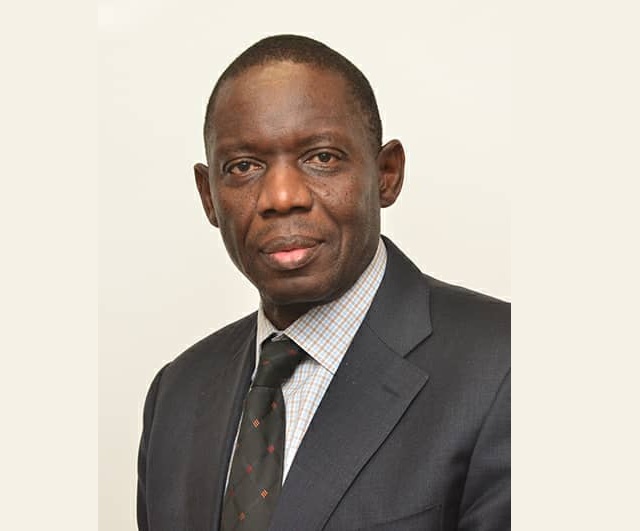
Earn it, keep it and sustain it
Kampala, Uganda | THE INDEPENDENT | The current fragile economic situation is an opportunity for people and businesses to embrace a saving culture to be able to sustain growth of their enterprises and social wellbeing, financial sector experts have said.
“Earn it, keep it and sustain it,” said David Mutaka, the head of human capital at Stanbic Bank Uganda.
Mutaka was speaking at a breakfast meeting held in Kampala on Nov.10 dubbed ‘thriving under difficult economic times’ attended by key business influencers and hosted by Mwansa Mutati, the Standard Bank Group Head for Consumer and High Net Worth for East Africa.
“To day is a challenging time; crisis presents in two forms – danger and opportunity,” he said. Mutaka said, fragile economic situations globally characterised by high inflation caused by the Russia-Ukraine conflict, supply chain disruptions and to some extend drastic weather conditions among other factors have caused the cost of living to go up.
He however said, there are opportunities to exploit including making savings to prepare for similar occurrences in the future, but to also earn higher yields from investment areas like government securities.
“The current situation challenges us to focus and pay attention to key priority areas—but key to this is to save for the future,” he said, “note that 95% of our wealth is determined by our habits,” he added.
Mutaka’s call connects well with the recent message shared by the Acting Bank of Uganda Governor who also doubles as Deputy Governor Michael Atingi-Ego at the annual World Savings Day that was commemorated on Oct.31.
Atingi-Ego said, all savers must entrust their money with the regulated financial institutions because savings are precious and are hard-earned.
“Savings are valuable because they are a lifeline on a rainy day; when accumulated, they must be guarded jealously from risks,” he said.
To promote a culture of saving in formal financial institutions, the first International Savings Bank Congress established World Savings Day on October 31, 1924, with Uganda joining this annual commemoration in 2016.
Atingi-Ego said, the accumulation of savings should be done while at the same time preserving the environment.
“Saving money for future goals and protecting the environment are complementary aspects of sustainability,” he said, “And, just as the time to save money is when one has some, however small the amount; every little step to reduce carbon emissions matters, however global the climate risk. Timely and sustainable saving is smart saving.”
The Financial Capability Survey 2020 showed that only 15% of Ugandans save their money in a deposit-taking financial institution regulated by the Bank of Uganda, while 17% save on their phones using mobile money. Up to 44% of the people rely on Village Savings and Loans Associations, and 42% resort to savings boxes at home.
Atingi-Ego said, the financial sector is developing a vibrant green finance ecosystem by harnessing technology and innovation to build markets and solutions for transitioning to a low-carbon future.
We also aim to empower people with effective knowledge and capabilities to save money and access other financial services while minimizing their carbon footprint according to Atingi-Ego.
For example, he said savers can access financial services such as savings, investments, payments, insurance, and loans through mobile phones without travelling long distances to physical bricks and mortar branches of financial institutions using carbon-emitting vehicles.
“It is incumbent on the financial sector to build and extend affordable and user-friendly green financial solutions to the underserved and small earners nationwide; “We urge every stakeholder to build an inclusive, vibrant, and safe green finance ecosystem that will crowd-in all those saving money at home,” Atingi-Ego said.
On her part, Mwansa downplayed the fears of savers losing their savings on account of a badly performing economy. She argued that Uganda’s economy that grew at 4.5% in FY2021/22 remains stronger compared to that of Sub-Saharan Africa and global growth rate of 4.3% and 3.4% respectively.
“If you borrow money, invest it,” she said, before committing Standard Bank group’s financial and non-financial support to Africa’s economy which “we believe is our home and have to driver her growth.”
Col. Deo Akiiki, the deputy army spokesperson who represented the Uganda Peoples’ Defense Forces at the breakfast meeting said, there is a direct connection between a secure economic environment, private sector investments and savings.
****
 The Independent Uganda: You get the Truth we Pay the Price
The Independent Uganda: You get the Truth we Pay the Price


